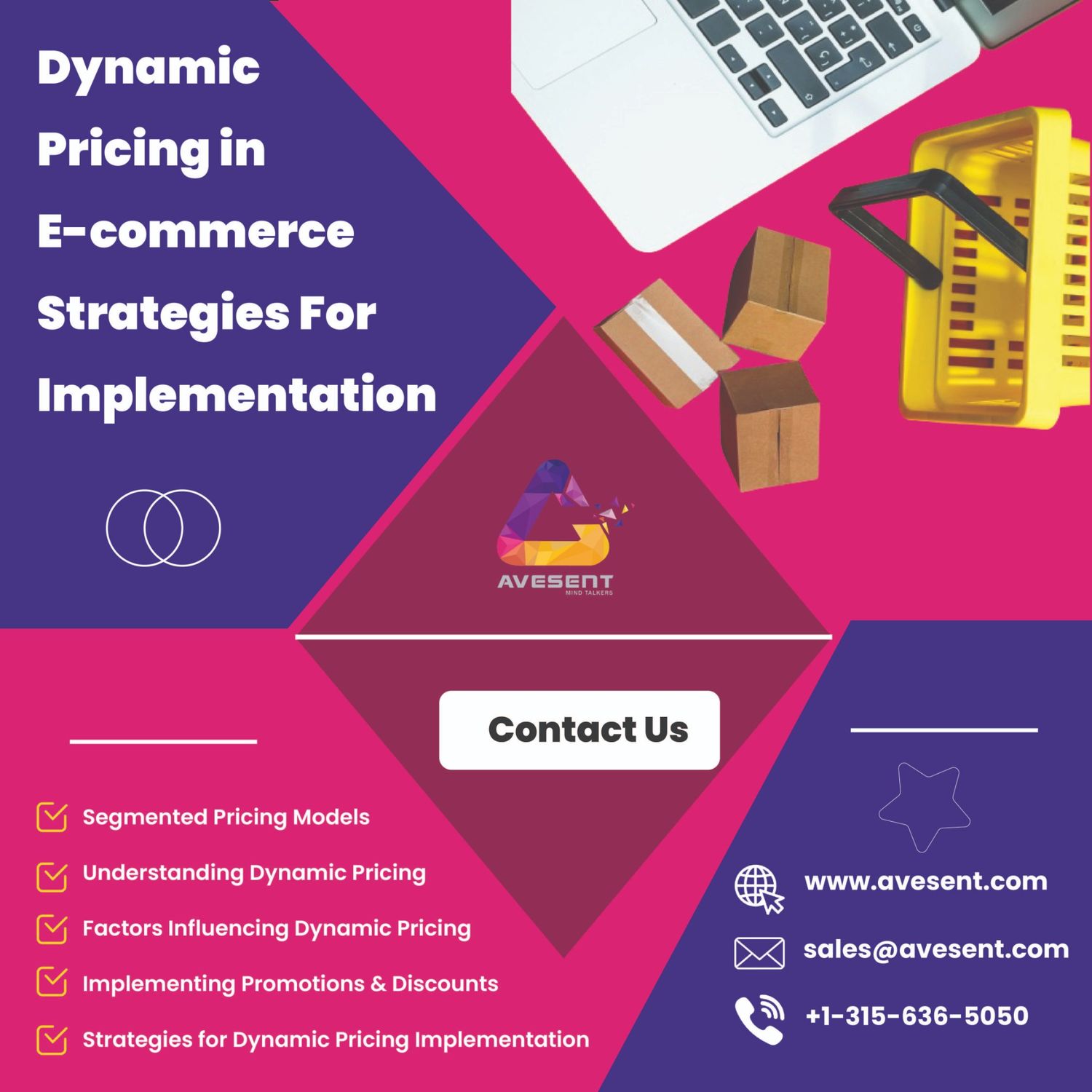Dynamic pricing has revolutionized the e-commerce landscape, offering flexibility and responsiveness to market changes. For digital marketing agencies in India, understanding and implementing dynamic pricing strategies can empower businesses to optimize their pricing models, enhance competitiveness, and drive sales in the ever-evolving online marketplace.
Understanding Dynamic Pricing:
Flexible Pricing Model: Dynamic pricing involves adjusting product prices based on various factors, including demand, competition, and market conditions.
Real-Time Adjustments: Adapting prices dynamically, often using algorithms and data analytics, to optimize revenue and sales.
Factors Influencing Dynamic Pricing:
Demand and Supply: Reacting to changes in demand and supply, ensuring pricing reflects market fluctuations.
Competitor Pricing: Monitoring competitor prices and adjusting accordingly to maintain competitiveness.
Seasonal Trends: Adapting prices during peak seasons, holidays, or specific events to capitalize on demand.
Strategies for Dynamic Pricing Implementation:
Data-Driven Decision Making: Utilizing data analytics to gather insights on customer behavior, market trends, and competitor pricing.
Algorithmic Pricing Tools: Implementing automated tools to analyze data and adjust prices in real time.
Segmented Pricing Models:
Personalized Pricing: Tailoring prices based on customer segments, purchase history, or location.
Tiered Pricing: Offering different price tiers for products based on features or levels of service.
Dynamic Pricing and Customer Perception:
Transparent Communication: Communicating price changes effectively to customers, ensuring transparency and trust.
Value-Based Proposition: Emphasizing the value proposition to justify price adjustments and create a positive perception.
Implementing Promotions and Discounts:
Flash Sales and Limited-time Offers: Utilizing dynamic pricing for time-bound promotional events to stimulate sales.
Discounts Based on Inventory: Adjusting prices to clear excess inventory or promote specific products.
Competitive Pricing Strategies:
Price Matching: Matching or undercutting competitor prices to maintain a competitive edge.
Strategic Price Positioning: Strategically pricing products to highlight value compared to competitors.
Monitoring and Adjusting Strategies:
Continuous Evaluation: Regularly monitoring the effectiveness of dynamic pricing strategies and making adjustments as needed.
Feedback Integration: Considering customer feedback and reactions to pricing changes for future improvements.
Dynamic Pricing Tools and Technologies:
AI and Machine Learning: Leveraging advanced technologies to automate pricing decisions and predict market trends.
E-commerce Platform Integration: Utilizing built-in tools or third-party solutions to implement dynamic pricing strategies.
Role of Digital Marketing Agencies:
Expert Guidance: Providing e-commerce businesses with insights and strategies to implement dynamic pricing effectively.
Analytical Expertise: Using data analytics and market research to identify pricing opportunities and optimize strategies.
In conclusion, for e-commerce businesses in India, embracing dynamic pricing can be a powerful strategy to stay competitive and agile in the digital marketplace. Digital marketing agencies play a pivotal role in guiding businesses to implement effective dynamic pricing strategies, leveraging data-driven insights, technological tools, and market expertise to optimize pricing models and drive business growth in the dynamic world of e-commerce.




